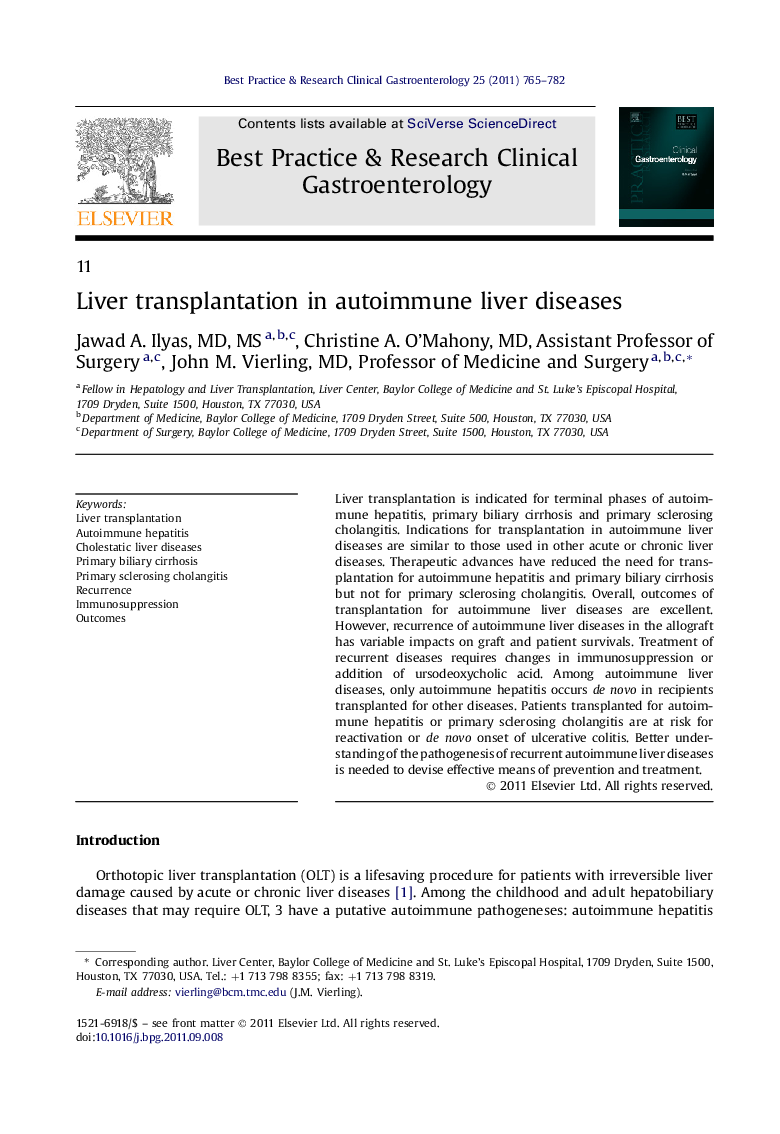| Article ID | Journal | Published Year | Pages | File Type |
|---|---|---|---|---|
| 6086517 | Best Practice & Research Clinical Gastroenterology | 2011 | 18 Pages |
Liver transplantation is indicated for terminal phases of autoimmune hepatitis, primary biliary cirrhosis and primary sclerosing cholangitis. Indications for transplantation in autoimmune liver diseases are similar to those used in other acute or chronic liver diseases. Therapeutic advances have reduced the need for transplantation for autoimmune hepatitis and primary biliary cirrhosis but not for primary sclerosing cholangitis. Overall, outcomes of transplantation for autoimmune liver diseases are excellent. However, recurrence of autoimmune liver diseases in the allograft has variable impacts on graft and patient survivals. Treatment of recurrent diseases requires changes in immunosuppression or addition of ursodeoxycholic acid. Among autoimmune liver diseases, only autoimmune hepatitis occurs de novo in recipients transplanted for other diseases. Patients transplanted for autoimmune hepatitis or primary sclerosing cholangitis are at risk for reactivation or de novo onset of ulcerative colitis. Better understanding of the pathogenesis of recurrent autoimmune liver diseases is needed to devise effective means of prevention and treatment.
